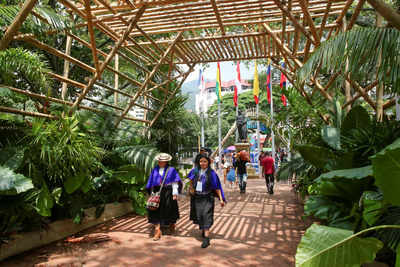
India and Bangladesh called for a more transparent and inclusive mechanism to facilitate biodiversity financing, voicing concerns over procedures related to a multilateral environmental fund that provides grants for projects related to it, according to a think-tank present at the UN COP16 summit negotiations. At the UN biodiversity conference, India underscored the importance of national biodiversity strategies and action plans (NBSAPs) in enhancing policy coherence across various sectors, according to Earth Negotiations Bulletin issued by think-tank International Institute for Sustainable Development.
This, India argued, is crucial for implementing comprehensive and effective biodiversity conservation measures at the national level, it said.
“India and Bangladesh said that the Global Environment Facility (GEF) procedures are cumbersome, noting the need for a transparent and inclusive mechanism,” according to the bulletin.
In a discussion on living modified organisms (LMOs), both Zambia and India noted that existing guidance on LMOs could be applied to fish, signalling their agreement on the use of current regulatory frameworks rather than creating new guidelines, the bulletin said.
The conference continued with intensive deliberations as Working Group I focused on resource mobilisation and financial mechanisms, while Working Group II addressed topics, including marine biodiversity, synthetic biology, and capacity-building initiatives.
Nations such as South Africa and China echoed the call for more equitable and accessible biodiversity financing, with several countries, including Pacific Island states, pushing for a stronger focus on local biodiversity initiatives, the bulletin said.
The discussions also highlighted the global call for scaling up financial contributions to support biodiversity conservation, with countries like Mexico and Fiji advocating for direct access to funds for Indigenous Peoples and local communities.
The need for capacity building, especially in developing countries, was also a recurring theme throughout the negotiations, with delegates stressing the importance of technical and financial support to ensure the effective implementation of biodiversity-related initiatives.
As the negotiations progress, contact groups have been formed to address key issues such as marine and coastal biodiversity, biodiversity and health, and synthetic biology, aiming to reach consensus on these complex and pressing matters.

